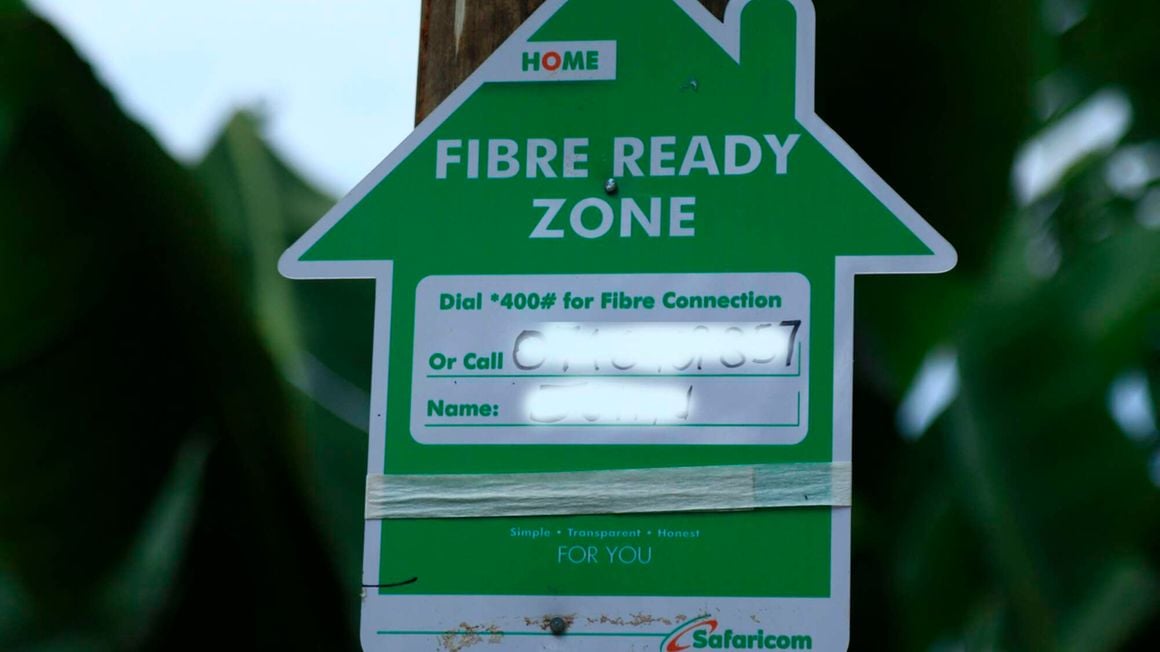
A sign showing Fibre ready zone in Nyeri town. This service enables subscribers access from their homes through fibre provided by Safaricom. PHOTO | JOSEPH KANYI | NMG
Safaricom added 36,604 new customers in fixed Internet service for homes and offices in the three months that ended September, accounting for more than half of the total industry’s additional connections in the review period.
Data from the Communications Authority (CA) data shows the telco’s market share subsequently rose to 35.6 per cent across the two market segments when total new connections rose by 70,788.
In the prior quarter that ended in June, the firm’s market share stood at 34.3 per cent.
ALSO READ: What customers spend on Safaricom services
Safaricom has now pulled further away from the Zuku-owned Wananchi (with a 25.5 per cent share) at the back of massive investments that the telco is pumping into a sector it says offers high revenue potential.
Safaricom has over the past years spent billions of shillings to build up its fixed-data network to connect homes on increasing demand due to Internet learning, working from home and online streaming services like Netflix.
“During the quarter under review, Safaricom Plc recorded the highest market shares in fixed data subscriptions at 35.6 per cent followed by Wananchi Group at 25.5 per cent,” the industry regulator says in the report.
The data shows that the number of homes and offices linked to fixed Internet jumped eight per cent to 986,462 in the quarter that ended September from 915,674 in the prior quarter that ended June.
Safaricom disclosed that scaling up its Fibre to the home (FTTH) and Fibre to the building (FTTB) service is a key plank of its revenue drive this year with the firm saying that the sector remains highly untapped.
It has connected thousands of homes to its fixed-data network, using fibre and poles that have seen it overtake Zuku and Jamii Telecoms to be a market leader.
READ: Safaricom adds 22000 lines to fixed internet service
“Over the medium- to long-term, we aim to connect one million homes with FTTH,” Safaricom disclosed in its latest annual report.
The Wananchi-owned Zuku has for years been the closest rival to Safaricom with the two firms caught in pricing wars that have lowered the cost of fixed Internet besides offering discounts to new connections.
Safaricom and Zuku control 65 per cent of the fixed Internet market. Jamii Telecommunications is the third biggest player at 18.9 per cent followed by Poa Internet (9.1 per cent).
Demand for fixed Internet has surged in the wake of the coronavirus as people work from home and schools adopt e-learning.
→ jmutua@ke.nationmedia.com




No comments :
Post a Comment